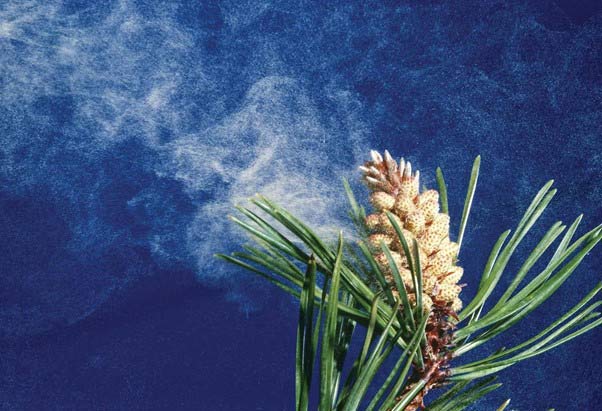
Understanding the Causes of Allergies and How to Prevent Them
Allergies are the bane of many people’s existence. From sneezing, coughing, and itchy eyes to skin rashes and difficulty breathing, allergies can cause a wide range of symptoms that can make life unpleasant for those affected by them.
But what causes allergies in the first place? And how can we prevent them? Let’s take a look at some of the most common causes of allergies and how to prevent them.
Common Causes of Allergies
Dust Mites
Dust mites are microscopic creatures that live in household dust. They feed on the dead skin cells that we shed every day, and they love warm, humid environments like carpets and bedding.
The tiny particles they leave behind can trigger allergic reactions when inhaled.
To prevent dust mites from triggering allergies, vacuum your home regularly with a HEPA filter-equipped vacuum cleaner and use allergen-proof mattress covers on your bedding.
Pet Dander
Pet dander is an allergen related to pet fur or hair; it’s composed of tiny flakes of skin that pets shed as part of their normal grooming process.
Pet dander can trigger allergic reactions in those who come into contact with it.
To reduce the risk of an allergic reaction from pet dander, keep your pets out of the bedroom and off furniture, brush them regularly outside or in a well-ventilated area, and wash your hands after petting them.
Mold
Mold is another common allergen that can cause allergic reactions in some people; it thrives in damp environments such as bathrooms and basements where there is plenty of moisture for it to survive.
To minimize mold growth in your home, make sure you clean up any visible mold growth immediately and take steps to reduce moisture levels by using fans or dehumidifiers where necessary.
Additionally, ensure that any air conditioning filters you use are changed regularly to reduce the number of allergens being circulated in your home.
Pollen
Pollen is a fine powder released by plants during their reproductive cycle; it is carried through the air by wind or insects and can trigger allergic reactions when inhaled by sensitive individuals.

To reduce exposure to pollen allergens, avoid going outside during peak times when pollination occurs (usually early morning) and keep windows closed when possible to reduce pollen infiltration inside the house.
It may also help to wear a face mask when outdoors if you are particularly sensitive or have severe allergies.
Insect Stings
Some people may experience an allergic reaction after being stung by an insect such as a bee or wasp; this type of reaction is known as anaphylaxis which requires immediate medical attention as it can be life-threatening if left untreated.
To minimize the risk of anaphylaxis from insect stings, wear protective clothing such as long pants or shirts with sleeves whenever possible when outdoors, and always be aware of your surroundings so that you don’t inadvertently stumble into areas with high concentrations of stinging insects like bees hives or wasp nests!
Food Allergies
Food allergies are caused by an immune system reaction to certain proteins found in food. The most common food allergens include milk, eggs, peanuts, tree nuts, soy, wheat, fish, and shellfish.
If you have food allergies, avoiding trigger foods is the best way to prevent an allergic reaction. Be sure to read food labels carefully to identify potential allergens, and always ask about ingredients when eating out at restaurants.
When traveling, carry emergency medication with you in case you accidentally come into contact with a trigger food.
Latex
Latex is a natural rubber product made from the sap of certain trees. It’s often used in medical gloves, condoms, balloons, toys, and tires.
Some people develop allergic reactions to latex that can range from mild itchiness or other skin irritation to life-threatening anaphylaxis.
If you have latex allergies, avoid products that contain latex, be sure to universal precautions when interacting with medical personnel, and always carry emergency epinephrine with you.
Medications
Some people develop allergic reactions to prescription medications, over-the-counter drugs, or herbal supplements.

Reactions can range from mild rashes hives or itching to life-threatening anaphylaxis. If you think you might be allergic to medication, talk to your doctor or allergist before taking any new drugs.
Be sure to undertake skin prick testing or patch testing to identify potential allergens before taking any new medications.
Chemical Allergies
Many everyday chemicals can cause allergic reactions including shampooing agents detergents, cleaners, polishes, perfumes, lotions, cosmetics, and topical medications.
Reactions to chemicals can range from mild contact dermatitis o severe respiratory distress.
To prevent chemical allergy reactions are sure to purchase hypoallergenic products whenever possible read labels carefully to identify potential allergens avoid scented products wear gloves when using cleaning products.
Environmental Allergies
Environmental allergies are caused by airborne particles such as smog ozone exhaust fumes pesticides herbicides, dust, mold, spores, animal dander, pollen, drugs, and chemicals.
Reactions to environmental allergens can be mild to severe depending on individual sensitivities.
To reduce exposure to airborne particles limit time spent outdoors on days when pollution levels are high wear a mask when outdoors keep windows closed at home filter indoor air regularly change furnace and air conditioner filters monthly wear gloves when using pesticides herbicides or other chemicals.
Learn more by clicking the link below.
Conclusion
Allergies are very common but not always easy to prevent—especially if you don’t know what triggers them!
By understanding some common causes like dust mites, pet dander, mold spores, pollen grains, insect stings, etc, you will be able to better prepare yourself for potential allergy attacks by taking preventive measures such as wearing protective clothing outdoors or keeping windows shut during peak pollination times!
Hopefully, this article has provided some insight into how best to manage any existing allergies while preventing new ones from developing! Best wishes for staying healthy!


